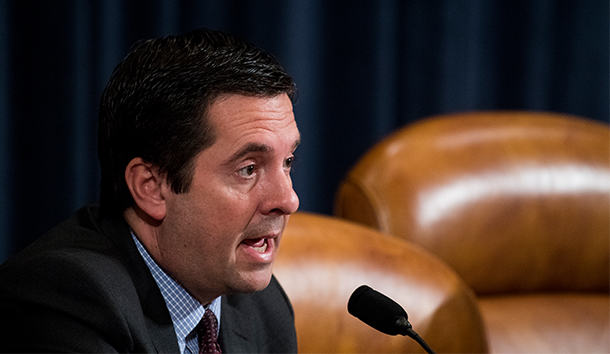John le Carré could hardly imagine a better scenario: a spy-for-hire—once a servant of Her Majesty’s government, now selling his services in a foreign market—takes payouts from two masters simultaneously, as both a police informant and a political dirty-tricks man. He feeds political intelligence to the police, who use that innuendo to justify covert surveillance of an opposition leader’s advisors. Then, when the spy-for-hire’s partisan sponsors unexpectedly lose at the ballot box, the ongoing police investigation becomes the centerpiece of a publicity campaign to undermine the newly elected government. The people expressed their will through the constitutional process, yet remnants of the old regime refuse to accept the verdict; they fight on from within the bureaucracy or plot their return to power from outside.
It would be a good thriller, a tale of disillusionment and intrigue, a showcase of how a postcommunist or formerly autocratic state risks backsliding into repression. Yet this is essentially the story of what has been happening in the United States over the past two years. Thanks to the House Permanent Select Committee on Intelligence and its chairman, California Republican Devin Nunes, we now know the role the partisan interests and Clinton cash played in whipping up investigations into Trump associates and conjuring the specter of collusion between Republicans and Russia.
The spy-for-hire in this real-life airport novel is Christopher Steele, formerly of MI6. As the Nunes memo reveals, Steele was a paid source for the FBI. In 2016, he was also working for Fusion GPS, an opposition research firm in the pay of the Hillary Clinton campaign and the Democratic National Committee (and, at an earlier stage, anti-Trump Republicans, including the Washington Free Beacon website). Steele compiled a dossier of widely unsubstantiated and flamboyantly salacious claims about Donald Trump’s involvement with Russia. On the basis of the Steele dossier, Justice Department and FBI officials sought and received permission from the Foreign Intelligence Surveillance Act Court to conduct clandestine surveillance of one-time Trump foreign-policy advisor Carter Page. The request was renewed several times. James Comey, at the time director of the FBI, signed the initial FISA request. Andrew McCabe, as deputy director of the FBI, and Sally Yates and Rod Rosenstein in the Justice Department also provided signatures for the FISA applications.
The memo, drafted by Nunes based on fellow committee member Trey Gowdy’s firsthand knowledge of the FISA documents, states that the FISA Court was not informed that the Clinton campaign and DNC were the ultimate underwriters, through Fusion GPS and the law firm Perkins Coie, of Steele’s dossier. Steele also planted stories in the media through Yahoo News’s Michael Isikoff and Mother Jones’s David Corn. Revealing to his media contacts that he was an FBI source wound up costing Steele his paid relationship with the bureau, which frowns on such disclosures. But even after he was “suspended and then terminated as an FBI source,” according to the Nunes memo, Steele “maintained contact” with Bruce Ohr, at the time an associate deputy attorney general who “worked closely” with Sally Yates (and subsequently Rod Rosenstein). Steele told Ohr in September 2016 that he was “desperate that Donald Trump not get elected.” As it happens, Ohr’s wife was working for Fusion GPS to produce anti-Trump research, which Ohr then supplied to the FBI.
The Nunes memo, a report by the Permanent Select Committee’s Republican majority, raises questions that ought to be taken seriously not only by all journalists but by the public as well. What does it mean when FISA surveillance powers and the FBI can be set upon an American citizen based on politically funded innuendo compiled by a foreign spy? If the whole point of the investigation into Russian meddling in the 2016 election is to ensure the integrity of our political system, surely the activities of a figure like Steele and an outfit like Fusion GPS merit scrutiny as well. Should law-enforcement agencies put their faith in such entities? Shouldn’t the American people hear about it when they do? Anyone who purports to believe in openness and public accountability has to be glad that this story has been brought to light. Civil libertarians should be happy to see that political bias within the FBI is also being examined, as are the mysterious workings of FISA. This is a civics lesson of inestimable value.
The revelations of the Nunes memo have been dismissed, predictably, by Trump’s critics. They point to the fact that Trey Gowdy, the only committee member who has seen the FISA paperwork himself, has expressed faith in the FBI and says that none of the questions raised by the memo undercuts independent counsel Robert Mueller’s Russia investigation. (Interestingly, Gowdy has announced his intention not to run for re-election, saying, “Whatever skills I may have are better utilized in a courtroom than in Congress, and I enjoy our justice system more than our political system.” Someone who wishes to return to work as a prosecutor might well have reason to go easy on the FBI.) Steele’s defenders insist that his work was honest no matter who was paying him, although the lack of any corroboration so far for his dossier’s many outlandish claims against Trump has to cast doubt on the mercenary spy’s credibility. Nevertheless, the Nunes memo is not going to put an end to the inquiries that Steele touched off.
Americans and their law-enforcement agencies are right to be concerned about foreign intervention in our elections. But as the Nunes memo shows, party politics, police powers, and foreign intrigue are all mixed together in ways that go far beyond the scope of the Mueller investigation. What the country needs is an honest reckoning about all of this in the public arena—in Congress and in the press—not more secret inquiries that are themselves compromised by partisan interest and foreign ambitions.

Leave a Reply